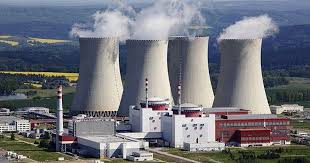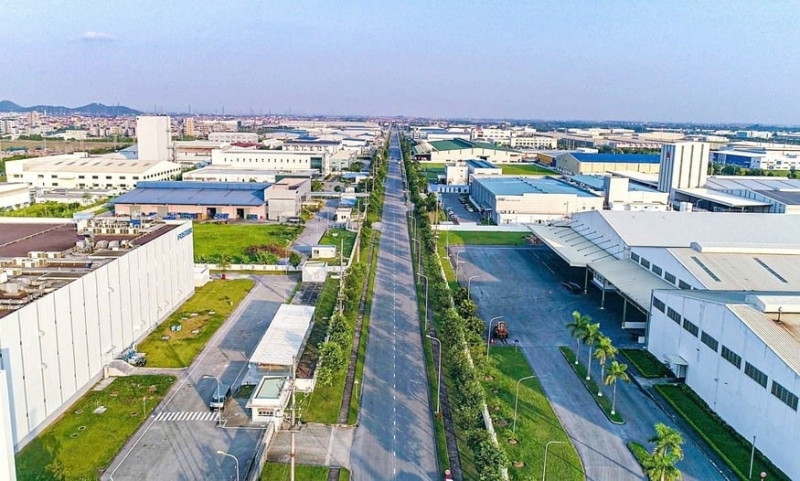
案例分析
我们通过许多不同领域的深入文章为客户提供有用且多样化的信息
The Urgency of Nuclear Power in Vietnam's Current Context
During his speech at Group 12’s discussion session at the 8th session of the 15th National Assembly, General Secretary To Lam emphasized the necessity of the revised Electricity Law, stating, "The demand for energy infrastructure is one of the leading and pivotal issues and a breakthrough point."
Experts highlight that Vietnam’s robust economic growth and the relentless expansion of production and business activities have led to a significant increase in electricity consumption. It is estimated that for every 1% increase in economic growth, electricity demand rises by 1.5%. With high growth targets in the coming years, Vietnam’s electricity demand is expected to increase by at least 10% annually.
In this context, conventional electricity sources such as coal and gas are facing major challenges, including greenhouse gas emissions and price volatility, while hydropower reserves have been nearly fully exploited. Therefore, to meet the projected doubling of electricity demand by 2030, a mix of traditional energy, renewable energy, and nuclear power has become an inevitable requirement.
Nuclear power stands out for its stable supply capabilities, mitigating electricity shortages during peak seasons and ensuring continuous energy sources for production and daily life. Although the initial investment costs are high, nuclear power has low operating costs, making it particularly suitable for energy-intensive industries.
Major energy projects, including nuclear power plants, not only play a crucial role in addressing increasing electricity demands but also act as a driving force for economic development. These projects enhance Vietnam's appeal to foreign investment, reinforcing the country’s position in the global value chain.
Vietnam’s Readiness to Restart Nuclear Power Projects
With the global shift toward Net Zero energy systems, nuclear power is emerging as a stable baseline source alongside wind and solar energy.
The National Assembly has approved Resolution 8 at its 15th session, endorsing the continued investment in the Ninh Thuan nuclear power project. Additionally, the revised Electricity Law, with policies supporting nuclear power development, provides a solid legal foundation to realize these projects.
This decisive government action addresses energy supply-demand imbalances, ensuring stable and sustainable electricity supplies for Vietnam’s growing economy, while bolstering the nation’s competitive edge in attracting foreign investment.
Furthermore, Vietnam has sought partnerships with advanced nuclear power nations like Russia and Japan to integrate, learn, and transfer technology. To address operational risk concerns, Vietnam has opted for the most modern technologies that adhere to stringent safety standards. The 3+ generation reactors Vietnam aims to deploy meet international requirements and are designed to minimize risks and enhance operational stability and safety.
Building a Skilled Workforce and Supporting Infrastructure
Human resources are a critical factor that the government has prioritized in the roadmap for nuclear power development. Since the initial research into the Ninh Thuan nuclear power project in 2009, Vietnam has focused on training a specialized nuclear workforce. According to the Vietnam Atomic Energy Institute, approximately 1,000 nuclear specialists have been trained over the past 50 years, with nearly 400 receiving advanced training between 2005 and 2020. These figures underscore Vietnam’s strong commitment to preparing a high-quality workforce capable of adopting technology and operating nuclear power plants.
The government aims to develop nuclear power not only as an energy source but also as an economic driver by ensuring integrated planning that connects nuclear power plants with the national power grid and key industrial zones. Investments are also being made in supporting infrastructure, research centers, training facilities, and nuclear laboratories, creating favorable conditions for domestic technology development.
With CO₂ emissions as low as 6 grams per kWh, nuclear power is considered one of the cleanest energy sources available, aligning with Vietnam’s Net Zero emissions goals. Countries like Japan, South Korea, and China have increased the proportion of nuclear energy in their power mix to address similar challenges.
The revival of nuclear power projects will position Vietnam to advance further in the Fourth Industrial Revolution, where nuclear technology plays a significant role not only in electricity generation but also in enhancing national scientific and technological capabilities. This will enable Vietnam to participate in the global nuclear power supply chain, promote high-tech industries, reduce environmental impacts, and strengthen the country’s competitiveness in the global energy market.
With a solid legal framework and clear development direction, the nuclear power sector is poised to become an integral part of Vietnam’s investment strategy, contributing to the nation’s sustainable development trajectory.
相关文章















